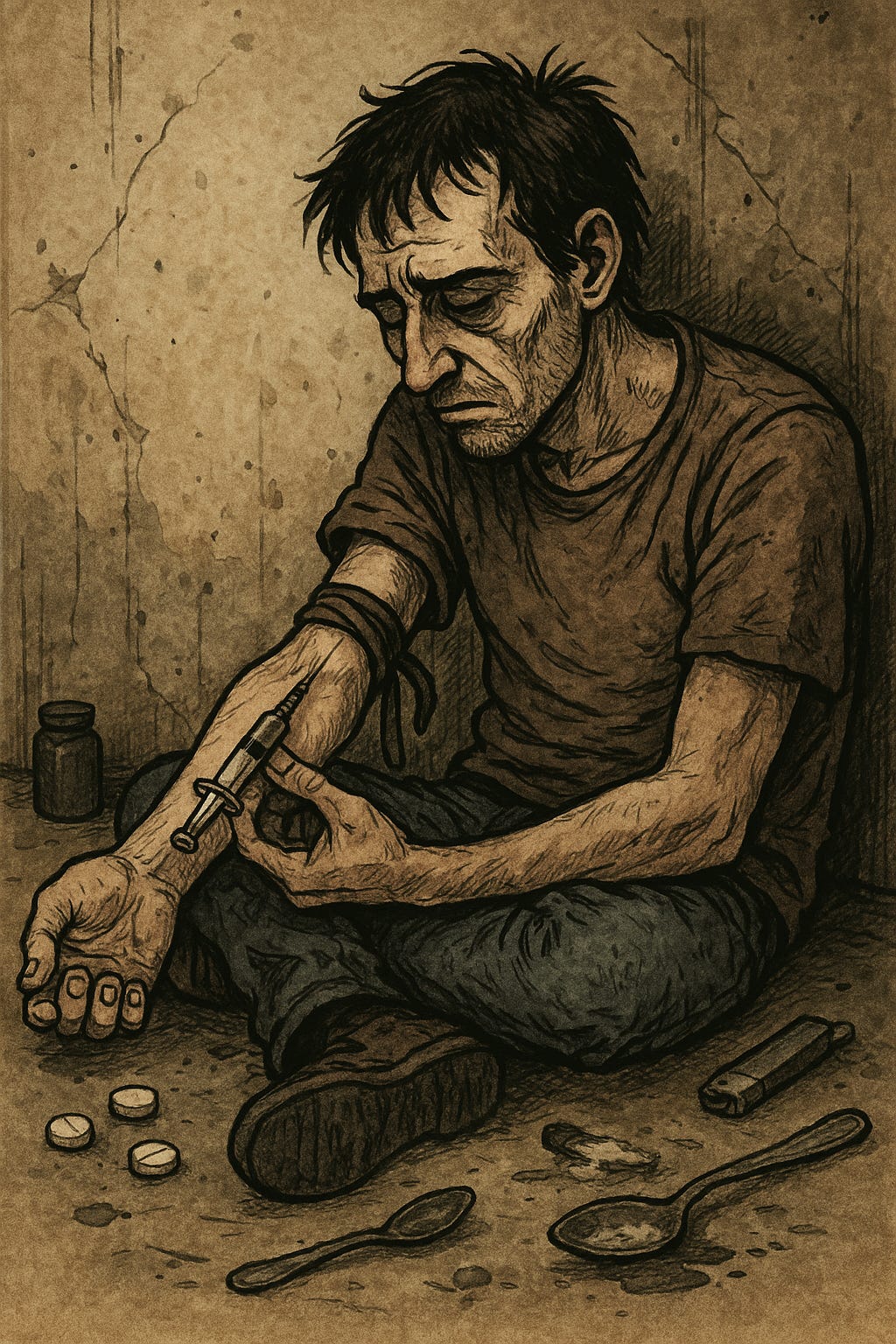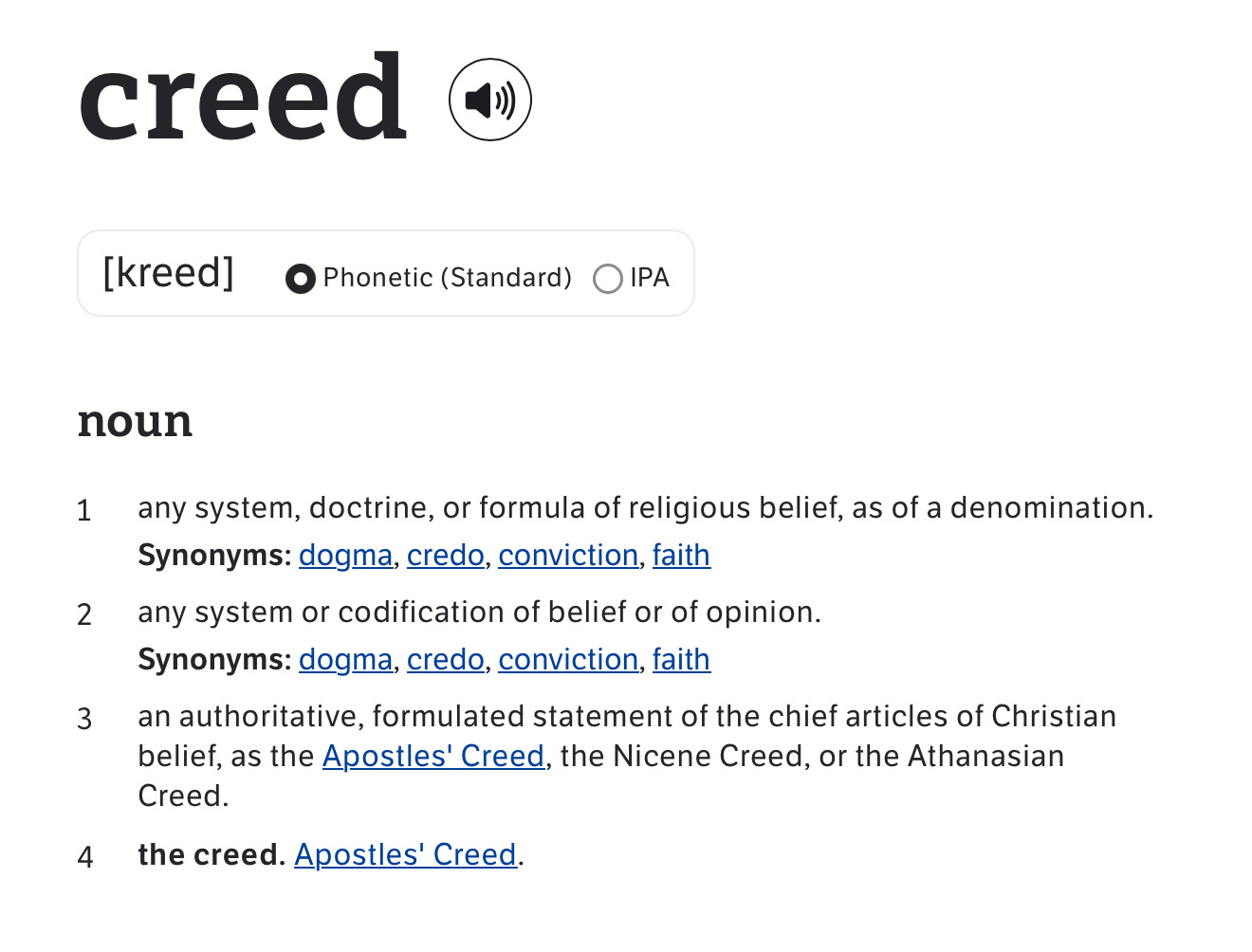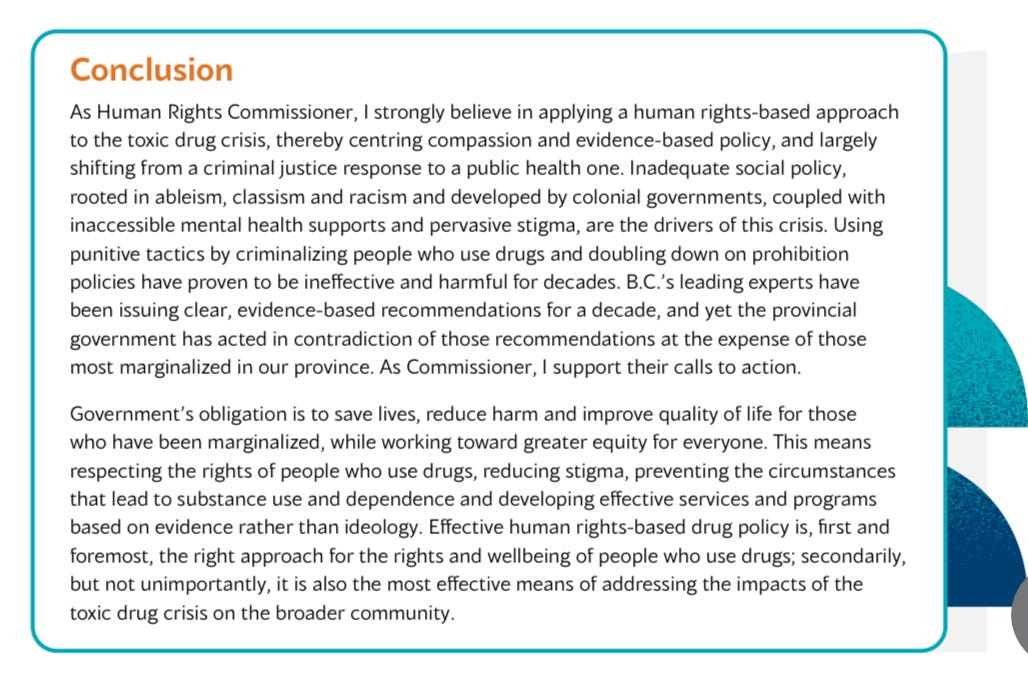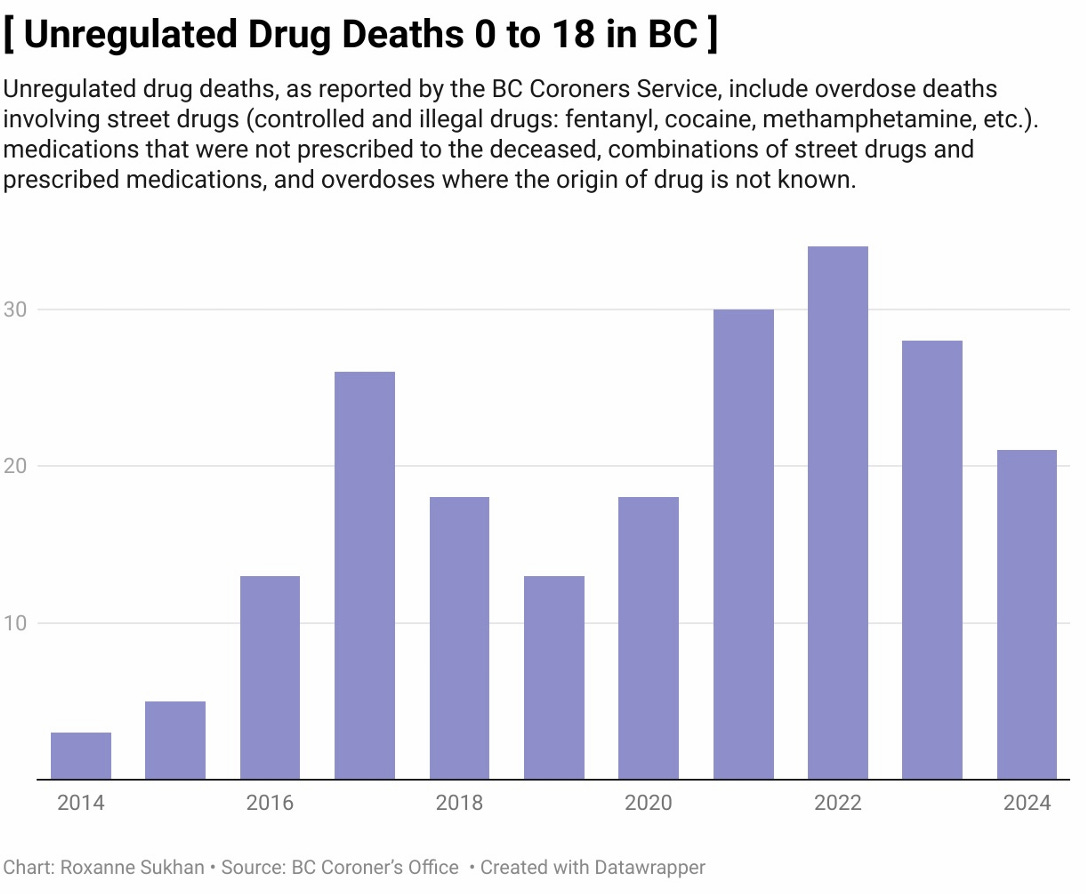Kasari Govender Thinks Addiction Recovery is Colonial
ideological capture of government institutions is killing people: Govender’s position statement has a cultish vibe and reads like a drug activist creed
Reader, the unelected humans rights commissioner Kasari Govender has written a Drug Activist’s Creed, not a position statement on addiction policy. It’s embarrassingly shallow and patronising. The ideological capture of our government institutions remains pervasive, and dangerously so.
“When public policy on substance use and treatment of people who use drugs is based on stigma and morality, rather than evidence and respect for fundamental human dignity, harmful policies result. The health crisis facing people who use drugs is created by these bad policies, including attempts at drug prohibition … Beyond challenges within the healthcare system, this crisis is also rooted in colonial approaches that prioritize individualism over community, wealth over health and power over empathy.” — Kasari Govender, BC Human Rights Commissioner.
Ableism. Classism. Racism. Colonial governments. Pervasive stigma. Kasari Govender says those are the driving causes of the toxic drug crisis. Govender refers to making illegal deadly addictive drugs as punitive tactics of criminalisation. Govender refers to prohibition policies as harmful and ineffective. Govender refers to BC’s leading experts issuing clear evidence-based recommendations. Who are these experts? What’s the evidence upon which they based their recommendations? Does Govender mean the “experts” who supported the DULF, the founders of which were recently found guilty of drug trafficking? That’s some expertise.
In September of 2021, DULF made a submission to Health Canada for exemption from the Controlled Drugs and Substances Act (CDSA). In a letter dated September 15, 2021, co-founder of Fair Price Pharma Martin Schechter gave his support for the “DULF Fulfillment Centre and Compassion Club Model”, writing that “access to a ‘safe supply’ of drugs that separates people from the toxic, illicit drug supply is an essential step if we are ever to succeed in ending the opioid poisoning crisis.” Letters of support for DULF’s application for an exemption to the CDSA came from several high ranking public health officials, among them Deputy Chief Medical Officer of Vancouver Coastal Health (VCH) Mark Lysynshyn, Thomas Kerr, Head of the Social Medicine Division of the UBC Faculty of Medicine, CATIE (Canada’s AIDS Treatment Information Exchange), Cheyenne Johnson of the the BCCSU, Christy Sutherland and Michael Vonn of the Portland Hotel Society, as well as Heather Hobbs and Corey Ranger of AIDS Vancouver Island (AVI). — from my article in The New Westminster Times, dated July 10, 2025
What does Govender envision when she writes about a human-rights based drug policy? Does she envision the decriminialisation policy which the Eby government has recently ended, admitting they made a mistake by implementing such a policy? Does she envision a “compassion club” based system, in which the government funds drug traffickers who help the addicted access their deadly drug of choice? Does she envision a “safe supply” system in which health care professionals give Dilaudids to the addicted and don’t witness them actually injecting the drug? Does she envision a system in which people who want abstinence-based treatment cannot get it? Who wants to tell Govender that we’ve tried those things and they killed people?
Govender has a lot of nerve, writing about accessible necessary supports for families to protect them against problematic substance use, considering the BC government, with their radical approach to addiction policy, let 13 year old Brianna MacDonald die, despite her parents’ pleas for help. I wrote about Brianna’s tragic story, please read it if you haven’t already done so.
Unfortunately, I know many families destroyed by drug addiction. I have seen too many young people die, have seen too many children suffer when their mothers fell into addiction they couldn’t escape because they couldn’t access treatment or any intervention to help them and their children. I have seen women enslaved by their addictions die, leaving their young children behind to wonder why mummy lived a chemical more than she lived them. What reality does Ms. Govender live that she can cling to the luxury beliefs she’s expressed in her position statement?
Main points of Kasari Govender’s Drug Activist Creed:
The toxic drug crisis is a human rights violation
The toxic drug crisis requires a public health response
Harm reduction and regulated alternatives to toxic drugs save lives and improves community conditions
Expert advice: “There is no evidence supporting claims that diversion is increasing overdose deaths or leading increased rates of youth to become substance dependent”
Reader, I probably don’t have to tell you all of these points in Govender’s Drug Activist Creed are false and misleading. It’s a cult we encounter here, not a serious and adult approach to addiction compulsion and mental illness and trauma.
You know what’s interesting about Govender and other provincial employees who work to prevent the drug addicted from getting a comprehensive and abstinence-based system of care that will help them escape drugs and reintegrate into society? That these employees all have access to abstinence-based addiction supports through their Employee Assistance Program (EAP). So, why does the professional class want to block the poor and marginalised from accessing treatment to which they themselves have access? Would Ms Govender be satisfied with condemning her child or spouse or sibling to the addiction programming she promotes for British Columbia’s most vulnerable?
“Sometimes, tough love is needed,” Eby said.
There’s only one way to ensure people don’t die from drug overdoses. That’s abstinence. It’s 100% effective when it’s supported and maintained. Restricting supply will support abstinence. Restricting supply means devoting resources to organised crime that make, traffick, and sell drugs. It means shifting from a system that feeds the addicted drugs to one that helps them get liberated from the enslavement of drugs. Reducing demand will support abstinence. It means addressing the reasons people turn to drugs. It means transparency and honesty. Stigmatising drugs will support abstinence. How did we reduce cigarette smoking? How did we reduce alcohol consumption? How did we reduce drinking and driving? How do we prevent Fetal Alcohol Syndrome? STIGMA. Sometimes rendering certain behaviours taboo helps keep society safe and keeps people alive.
‘Treating people who use drugs as if their health issues are moral failings is a violation of their human rights. We don’t criminalize smokers who develop lung cancer, nor diabetics whose diets increase risk of renal disease, because we understand that people have rights to make choices about their lives based on a number of complex and personal factors and still receive comprehensive care and support for health issues flowing from those decisions.” — Kasari Govender’s Drug Activist’s Creed
Reader, we have reached peak bullsh1t.











